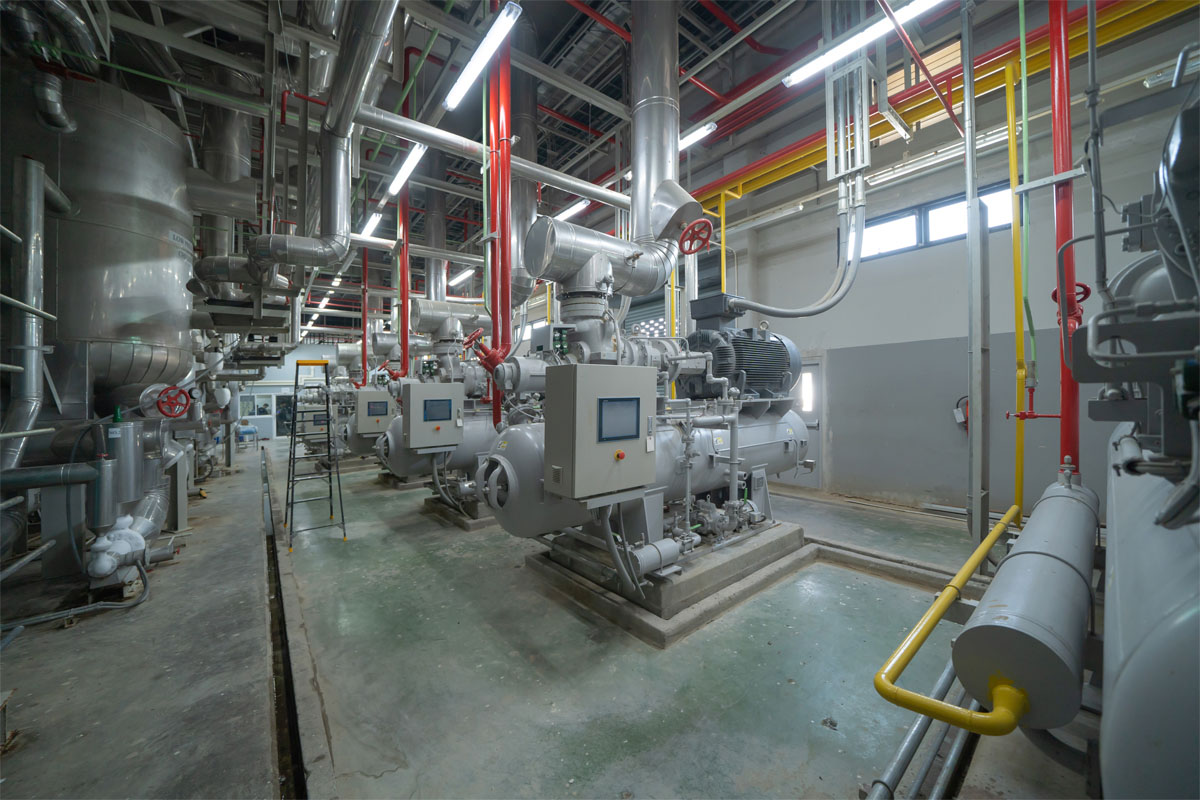A chiller (cooling water circulation tool) is an overall term for a tool that manages the temperature by the circulation of a liquid, for instance water or heat a medium as a cooling liquid of which temperature gets adjusted by refrigerant cycles. Besides maintaining the temperature of different industrial tools and laboratory devices, equipment and devices at a continual level, it is also used for air conditioning in warehouses and factories. It is typically known as a “chiller” since it is usually used for cooling. A chiller can deliver chilled water constantly while the circulation of water in a cooling tool. It is used a lot as a suitable device for cooling heat producing parts and air conditioning equipment laser processing mechanisms and high frequency heating mechanisms at a continual temperature, solves different cooling issues and can decrease running expenses while improving energy effectively.
Advantages Of a Chiller
One of the main features is that they offer a high degree of advantage in designing the primary unit installation location and system for water piping. The chiller uses a process of creating chilled water and transferring water to a chilled water coil of an A/C unit, so subject to the integration, it can be used for different purposes like larger capacities and larger spaces. However, there is typically no need to assess the variation in the height of the refrigerant pipe and the limitations of the pipe length like an air conditioner type. Additionally, steam and hot water like warehouse exhaust heat can also be utilized, and it is possible to construct a co-producing system that utilizes waste heat (hot water) of a generator.
Selecting a Chiller
When deciding on a chiller, it is vital to match its performance, functions, and specifications of the chiller with the equipment utilization settings and status. Should you overlook this matching work, it might not exhibit the intended performance when it actually is operated, and it is also feasible that the machinery to be cooled and the chiller on its own could cause issues.
Chiller Considerations
Besides issues with the set temperature and level of heat to be cooled, the rising height of the piping that connects the cooled items and chiller might change because of the thickness, shape and length of the piping, so deciding on the chiller type is not as straightforward in comparison to other equipment. In order to properly decide on a chiller, first ascertain the temperature of the circulating water and then ascertain the cooling process from the installation setting, if it is air-cooled or water-cooled. After establishing the cooling volume from the machinery to be cooled and the magnitude of the pump, you can progress to the chiller choices. It is important to select while establishing the usage provisions with these processes.
Types Of Chillers
A chiller removes liquid from the target tool and cools it. The withdrawn heat should be exhausted by the chiller itself, and as a heat exhaust process, there are those that utilize chlorofluorocarbons known as refrigerants and those that comprise of water circuits that circulates water. There are different types of cooling processes, like air-cooled type and water-cooled type.
Air-Cooled Chiller
These chillers take in heat from processed water, and the heat is then transferred to the air surrounding the chiller unit. This chiller system is typically used in practices in which the additional heat it releases has no impact. Actually, it’s usually effective to use the leftover heat to warm a warehouse throughout the winter, therefore providing added cost savings.
Water-Cooled Chiller
These chillers take in heat from processed water and transfers it into a detached water source like cooling towers, rivers, ponds, etc. Industrial water-cooled chillers are typically used for large capacity practices, in which the heat created by air-cooled chillers creates issues.
If you are interested in purchasing Chillers in Phoenix or anywhere else in the Valley call us today at 602-997-0403.
Universal Tower Parts In Phoenix, AZ
Universal Tower Parts provides stainless steel and galvanized options, welded and gasketed, direct, gear reducer and belt drive units, with efficient Jedair fans, and Jedair low noise fans. Strainers, fan guards and louvers are well constructed, and designed to operate efficiently as they perform their function.








